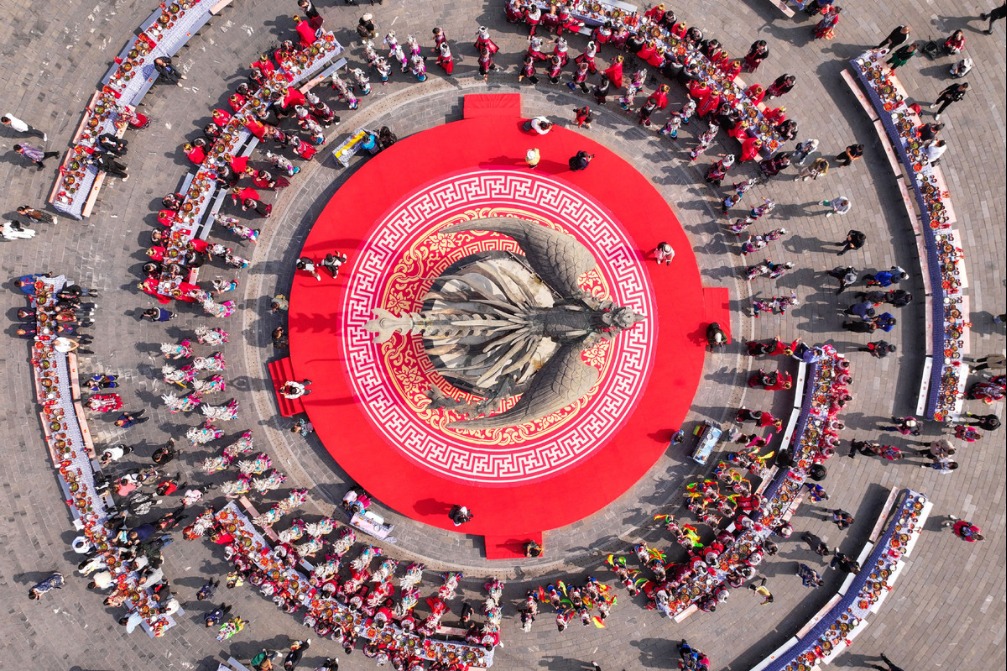Golden targets
Rising geopolitical tensions call for Hong Kong to develop world-class gold storage facilities and set up cooperation zones with the Chinese mainland to facilitate physical deliveries of the precious metal. Liu Yifan reports from Hong Kong.


Hong Kong is seeking new growth drivers in gold trading amid growing geopolitical tensions after Chief Executive John Lee Ka-chiu flagged plans to make the city an international gold trading market.
Gold has long been a key safe-haven investment and an important anchor in the precious metals category, with its attributes as a commodity, reserve asset and investment product. Financial trading of gold involves investors using standard or customized contracts to buy and sell physical gold or related spot or futures products based on their needs.
Legislative Council member Tan Yueheng says the initiative comes at an "opportune time", highlighting its strategic consideration and long-term significance to help Hong Kong become a comprehensive financial center offering various asset classes.
Compared with the more mature and competitive stock, bond and currency markets, Hong Kong's commodity trading is relatively weak, says Tan, and, with the latest initiative, the city can attract users and investors for physical gold storage and settlement.
Diversifying precious metal pricing in the special administrative region will also complement the country's robust import-export demand and supply, while boosting its pricing power in the international commodity market, says Tan, who is also chairman of BOCOM International Holdings Co.
As a first step, the SAR government unveiled plans to develop world-class gold storage facilities by expanding the existing depository at Hong Kong International Airport.
Initially, the HKIA Precious Metals Depository's capacity will be expanded from 150 metric tons to 200 tons, with plans to increase it to 1,000 tons in later stages.
Since 2009, the Airport Authority Hong Kong has been managing the facility, with institutions like the Hong Kong Monetary Authority, the city's de facto central bank, having relocated their overseas gold holdings there. The depository primarily stores gold and offers warehousing and spot settlement services for global central banks, commodity exchanges, precious metal banks, refiners, and exchange-traded funds issuers. For security reasons, it does not have an official website. Currently, it is nearing full capacity.
"Based on increased storage, we expect to scale up associated support services in insurance, testing and certification, and logistics, while expanding related transactions, including collateral, loan and hedging, hence creating a comprehensive ecosystem," says Undersecretary for Financial Services and the Treasury Joseph Chan Ho-lim.
This initiative will promote comprehensive multicurrency trading, clearing, and delivery, along with the development of a regulatory system, creating an integrated gold trading hub.
The Financial Services and the Treasury Bureau will establish a working group to strengthen the trading mechanism and regulatory framework, promote advanced financial technology, and discuss with the Chinese mainland authorities the inclusion of gold-related products in the mutual market access program.



































